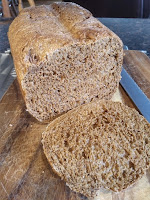Health Canada Identification of Oats for Gluten Free Diets

Health Canada considers "gluten-free oats" as those that do not contain more than 20 parts per million (ppm) of gluten from wheat, rye, barley, or their hybridized strains. A typical serving would be 1/3 cup dry oats. For those who are very sensitive to gluten, too much could create a problem. eg small children or others who have had repeated high TTG with very good diet compliance. Gluten Free Oats are a great source of soluble fibre and iron but be aware of the potential issues with large portions. http://www.hc-sc.gc.ca/fn-an/ securit/allerg/cel-coe/avoine- gluten-oats-eng.php Theresa Schneider BASc, RD, MPH